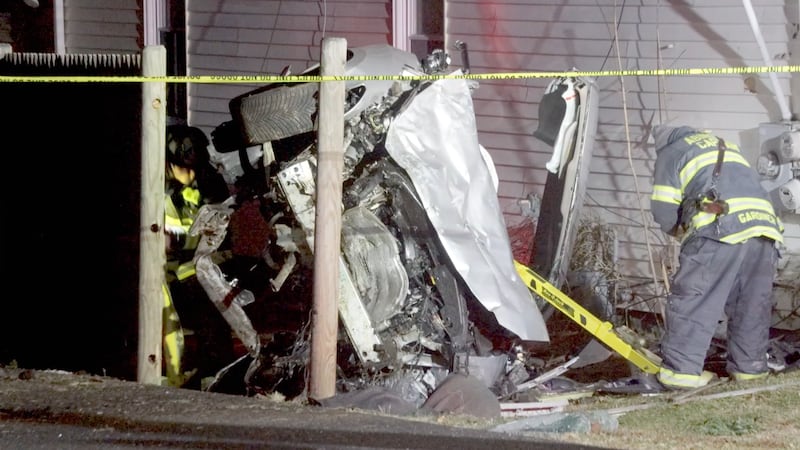NEWBURY, Mass. — Joseph Abt of Newbury loves baseball but lost a season to the pandemic. He tells Boston 25 News that he began to feel ‘down’ and his grades, which were straight A’s, fell as he began to feel isolated, angry, and lonely.
“You’re kind of at the point where you can’t expect anything good,” said Abt, 16.
Joseph’s school, Triton Regional High School, moved to a hybrid model in late January after months of remote learning. He says he’s encouraged by the change, but his mother, Emily, is worried about the long-term mental damage that may have been done.
“They’ve lost so much,” Emily Abt said of her children and others mired in remote learning.
Emily Abt said the district did what it could to get Joseph counseling help. But she says she felt, after a while, it was not impactful. Eleven-year-old Laci Jenkins is also a Triton student. She has been at school for most of this school year as she’s considered a high-needs student. Before going back for in-person learning, she told Boston 25 News she began harming herself as social isolation took hold.
“I would just get stressed out,” Jenkins explained. “I would kind of just start crying and hitting my head.”
Laci’s mother, Wendy Richardson, was arranged for her daughter to meet with a therapist. She wondered about the mental scars that may remain after the pandemic.
“I hope not, but I don’t know how there can’t be,” said Richardson.
Triton Regional School District Superintendent Brian Forget told Boston 25 News the mental health of students is the district’s primary concern.
“Academics are important, and we will have the opportunity to ‘fill the gaps in the months and years to come. However, our students’ overall mental, social, and emotional health directly affects their ability to engage in learning. If students aren’t prepared to learn, then the best and most dynamic instruction will still not be effective. We have been using Federal/State COVID relief to mitigate that impact this year and have dedicated considerable funds from those grants for overall planning and the anticipated need for direct mental health services to students in the coming summer and school year.”
— Triton Regional School District Superintendent Brian Forget
Boston 25 News spoke at length with Commissioner Jeffrey Riley of the Department of Elementary and Secondary Education about what the state is doing to help kids struggling with mental health.
“We have seen dollars come from the federal government to help support schools, and we are telling our districts they need to prioritize mental health support for our students with those dollars,” Riley said.
In January, DESE began requiring more face time with teachers, even if it’s virtual.
“Recently, we put in some structured learning time regulations which ask for more direct face time with teachers and students just setting a minimum level,” Riley added.
Parents who spoke with Boston 25 News said the change to learning time is helpful, but the day in front of the screen is still too long.
During the pandemic, the mental health impact of remote learning has made headlines nationwide, with the superintendent of one Nevada school district saying 18 of his students died by suicide since March of 2020.
Between headlines and concerns from what they witnessed, parents are looking for steps to lessen the mental burden on their children.
“Parents are in a great position to help figure out what’s going wrong and do some things that can help,” said Dr. Gene Beresin, executive director of The Clay Center for Young Healthy Minds at Massachusetts General Hospital.
Boston 25 News also spoke with Dr. Lloyd Fisher, a pediatrician, and president of the American Academy of Pediatrics, Massachusetts Chapter.
Dr. Fisher said students who are remote learning need to be monitored long-term.
“I don’t know how long-lasting the effect is going to be on them,” Fisher said.
Between now and the summer, whether a district is in-person or fully remote, Fisher said he urged schools to use their counselors and adjustment faculty to be proactive in reaching out to as many students as possible.
“There are a lot of kids. They might be silently suffering,” Fisher added.
Experts suggest parents turn to professionals for treatment. Though they admit, a shortage of therapists has been an issue since before the pandemic began.
That is one reason Commissioner Riley told Boston 25 News he sees a need for school districts to add more counselors and social workers in the months ahead.
Download the free Boston 25 News app for up-to-the-minute push alerts
>> Complete local and national coronavirus coverage here
RESOURCES:
- Complete local and national coronavirus coverage here
- Follow us on Facebook and Twitter | Watch Boston 25 NOW





